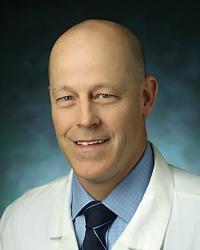Loading Complete

Mark Slidell, MD, MPH
Pediatric General Surgery
Accepting New Patients
33 Insurances Accepted
View allAbout
Professional Titles
Primary Academic Title
Background
Leadership Title
Videos
Honors
Memberships
Locations
- Rubenstein Child Health Building
- 200 North Wolfe Street, Rubenstein BLDG Lower Level, Baltimore, MD 21287
- phone: 410-955-5210
- fax: 410-502-5314
- Suburban Hospital
- 6420 Rockledge Drive, Suite 2300, Bethesda, MD 20817
- phone: 443-997-5437
- fax: 301-896-9858
- Johns Hopkins Children's Center Pediatric Specialists - Annapolis
- 820 Bestgate Road, Suite 2D, Annapolis, MD 21401
- phone: 410-955-5210
- fax: 410-502-5314
Expertise
Education
Children's National Medical Center
Fellowship, Pediatric Surgery, 2012MedStar Health
Residency, General Surgery, 2010Johns Hopkins Bloomberg School of Public Health
Graduate School, MPH, 2006The Warren Alpert Medical School of Brown University
Medical Education, MD, 2003Board Certifications
Pediatric Surgery
American Board of Surgery, 2018Surgery
American Board of Surgery, 2013Insurance
Johns Hopkins providers participate in many commercial health insurance plans. To confirm coverage of your specific physician or provider, please contact your insurer directly. For more details, please review our Insurance Information.
Search plans
- Aetna
- Amerigroup District of Columbia
- AmeriHealth Caritas District of Columbia
- Beech Street
- Blue Cross Blue Shield Federal Employee Program (FEP)
- CareFirst
- Cigna
- Evernorth Behavioral Health
- First Health
- Geisinger Health Plan
- HealthSmart/Accel
- Humana
- JAI Medical Systems
- Johns Hopkins Health Plans
- Kaiser Permanente
- KeyCare
- Maryland Physicians Care
- Medicaid DC
- Medicaid Maryland
- Medicaid Virginia
- Medicare Maryland
- MedStar Family Choice District of Columbia
- MultiPlan
- Pennsylvania's Preferred Health Networks (PPHN)
- Point Comfort Underwriters
- Private Healthcare Systems (PHCS)
- Provider Partners Advantage HMO SNP Medicare Advantage
- South Central Preferred (SCP)
- Superior Vision
- TRICARE (Humana Military East)
- UnitedHealthcare
- Veteran Affairs Community Care Network (Optum-VACCN)
- Wellpoint (Amerigroup MD)
